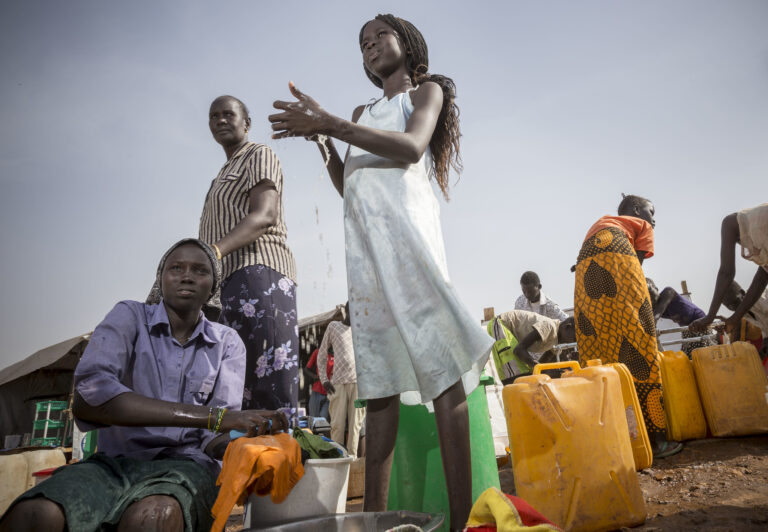Climate change is accelerating and could further drive migration and exacerbate conflict, according to scientists attending the recent Hot Brain conference by the Queen Square Institute of Neurology of University College of London (UCL).
“Up until two or three years ago, our predictions and the observed materials were showing us that climate change was where we were expecting it … now it’s warmer than it should be and we’re not quite sure why,” said Mark Maslin, professor of Earth Science at UCL.
Rising temperatures are causing “more extreme storms, floods, droughts, heat waves, and wildfires,” which in turn may lead to food and water insecurity, he added.
Maslin dismissed the idea that “climate change is going to cause environmental stress and people are going to migrate and cause wars” by itself, because “humanity is very good at creating conflict and migration without any excuse whatsoever.”
However, he said climate change and the ensuring migrations “can be a threat multiplier.”
The negative health effects of climate change impact individuals who are subject to different risks. “Vulnerability is increased by illness, disease, gender, age, occupation, and inequality,” explained Maslin.
Exposure to extreme weather can also lead to lasting negative mental health effects. Studies on flood victims show these can persist up to 10 years later “due to having their home, their safety net, destroyed.”
Over 45mn people in over 160 countries have been internally displaced since 2008 due to weather and climate-related disasters, according to the Internal Displacement Monitoring Centre.
A 2022 study on Rajasthan in India was cited at the conference, The research showed a gendered migration pattern.
“As climate change worsens agricultural yields, men are often forced to leave in search of work, leaving women to shoulder the farming burden,” explained conference organiser Sanjay Sisodiya, a professor of neurology at UCL.
This meant women also had less time for childcare, contributing to higher rates of malnutrition among children, he added.
But even for those who left, the health impacts of climate hazards can still persist.
“We are increasingly seeing male migrants from India in our Vienna clinic presenting with neurological complications stemming from prolonged heat exposure in their home regions,” said Claudia Innerhofer, a neurologist with Vienna’s Health Association.




